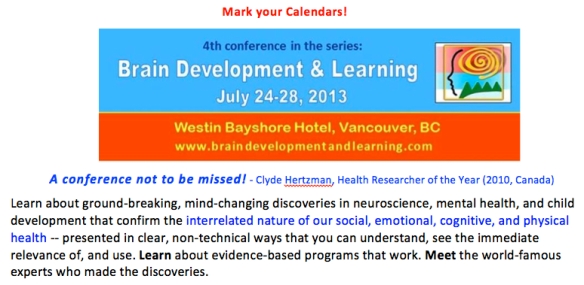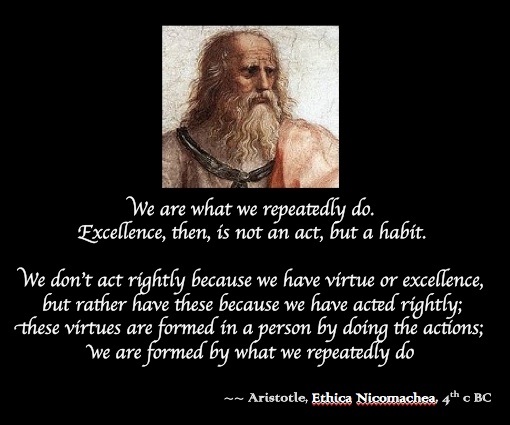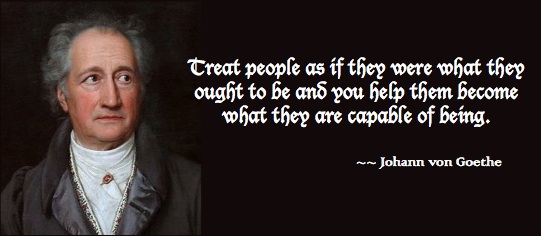The 4th Brain Development and Learning (BDL) Conference is only a little over 6 months away. It runs from July 24-28 at the Westin Bayshore Hotel in the beautiful city of Vancouver, BC, Canada. For more information about making reservations at the Westin Bayshore Hotel for the conference, click here. If you register before Feb. 15, you’ll receive the early bird discount and save enough for some great sightseeing and dining out when you get here!!
Below you’ll find a sample of ONE popular conference theme and subtopics together with some wonderful speakers who’ll be presenting on that theme. [Note: this is just ONE. You’ll find the others — both themes and speakers — in the conference brochure.]
- Mind-Body Interrelations & Holistic Approaches to Health and Healing: that for good health, school success, and personal development it is critical to address ALL the aspects of a person — social, cultural, spiritual, cognitive, physical, and emotional.
- Childhood Trauma: understanding its deep and diverse effects but especially how we can help children recover, prosper, and shine
- Maternal Depression: effects of a mother’s depression on her child and what to do about it
- Neuroplasticity: the brain is plastic; it changes throughout life based on what you do and experience
- Epigenetics: most of your genes are turned off; experience affects ‘gene expression,’ that is, it affects which genes get turned on and when
Some of the Amazing Speakers who have agreed to speak at BDL 2013 on one or more of the above topics include:
- Gabor Maté, an expert on mind-body interrelations, and author of When the Body Says No: The Cost of Hidden Stress
- Bessel van der Kolk, his book Psychological Trauma was the first integrative text on the subject, setting out far ranging impact of trauma on the entire person and the range of therapeutic issues that need to be addressed for recovery
- Pat Ogden, founder of Sensorimotor Psychotherapy, an expert on mind-body interrelations, and author of Trauma and the Body: A Sensorimotor Approach to Psychotherapy
- Annette Karmiloff-Smith, Professor Emerita University College London, author of Re-thinking Innateness and Beyond Modularity: A Developmental Perspective on Cognitive Science
- Moshe Szyf, Prof. of Pharmacology and Therapeutics, McGill U., studies epigenetics
- Bill Beardslee, Prof. & former Chairman, Dept. of Psychiatry, Harvard Med Sch, author of When a Parent is Depressed: How to Protect your Children from the Effects of Depression in the Family
- Ian Gotlib, Prof. of Psychology & Sr. Assoc. Dean, Stanford Univ., studies how and under what circumstances a mother’s depression affects her children
- Greg Miller, Prof. of Psychology, Co-Director of the Psychobiological Determinants of Health Laboratory Association at UBC, studies Biological Embedding of Early Life SES and the Psychobiology of Caregiving.
- Sonia Lupien, is the Founder and Director of Centre for Studies for Human Stress; her research interests focus on the effects of stress on people and their lives.




